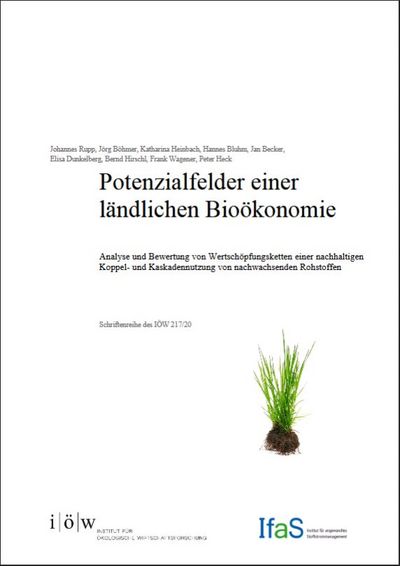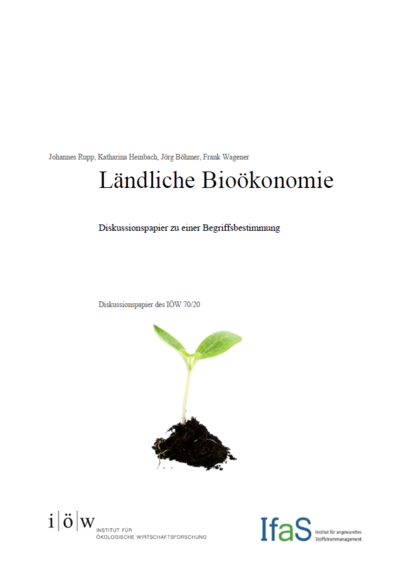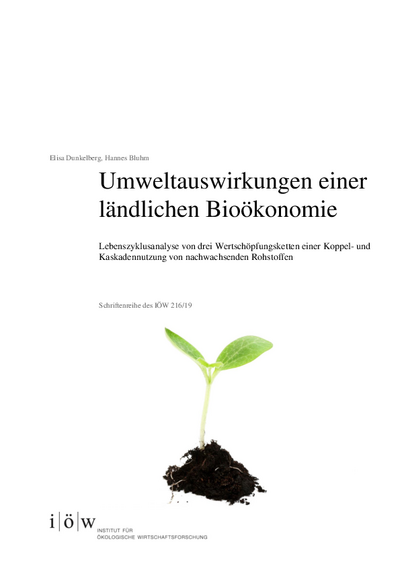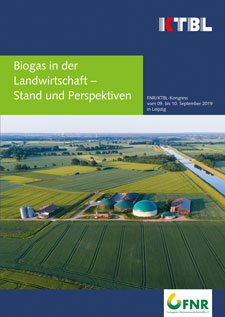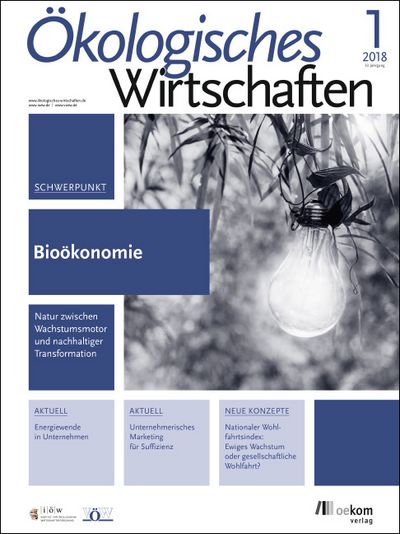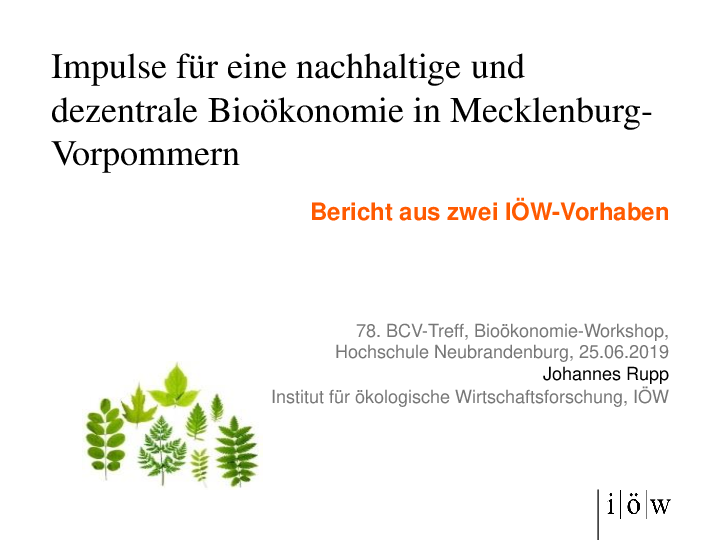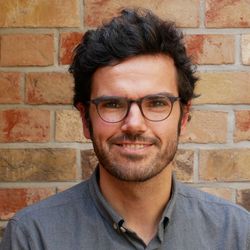Future Potentials of a Rural Bio-Economy Analysis and Assessment of Value Chains of a Multiple and Cascade Based Usage of Renewable Raw Resources (Phase I)
A resource-efficient economy based on renewable resources, with less or even no use of fossil resources at all – that is the objective of the German “National Policy Strategy on Bioeconomy”. The German Federal Government developed this strategy in order to provide solutions that help to meet global challenges. According to the strategic guiding principle renewable raw materials should also serve as basis for the industry sector and the generation of energy. However, highest priority is still the assurance of food security. Material and energetic use of biomass can lead to benefits for the rural economy if utilization paths with the potential for higher value added are selected. In addition, a variety of innovations can be created on the way towards a bio-based economy according to the “National Research Strategy BioEconomy 2030” of Germany.
Scope of Action for Rural Regions
Rural regions should play a special role in the future design of bioeconomic activities. They can be more than just a supplier of renewable raw materials to (industrial) bioeconomy concepts. If the majority of the value added stages and steps of decentralized bioeconomy activities are established within a region rural regions can be strengthened by the creation of positive value added and employment effects. However, which options do actually exist for a rural bioeconomy and how can they be assessed economically and ecologically? These are the underlying questions of the joint research project “Future Potentials of a Rural Bioeconomy”.
Overall objective of the research project is the illustration of future potentials of a rural bioeconomy. This shall serve as a basis for the design of regional bioeconomy concepts and innovative business models in rural regions. As a first step, possible decentralized approaches for a material and energetic use of biomass that are located in rural regions will be identified. The project team determines available potentials for renewable raw materials and land, carries out a market analysis for selected products and product-groups and analyzes the political and legal framework conditions. In a further step, technologies, essential infrastructures and material flows of selected utilization paths and application areas are analyzed. In this process different procedures of a multiple and cascade-based usage of biomass are considered. Of particular interest is the use of biomass that has not been used at a higher quality so far – such as grass, or the use of by-products and residual resources – such as straw and fermentation residues. The same applies for products, which are in demand or manufactured locally, like for instance fertilizers and nutrients or building and insulation materials.
Regional Economic and Ecologic Effects of Bioeconomy Approaches
The economic analysis for the identified future potentials of a rural bioeconomy will take place through an analysis of regional value added and employment effects. At the same time, an ecological analysis will show environmental impacts. The assessment of regional economic and ecological effects of selected bioeconomy approaches will be done for exemplary regions or projects. Furthermore, a scenario-based projection will illustrate possible effects for entire Germany. At the end of the project recommendations for action will be drafted for the further development of pioneer activities as well as recommendations for shaping the political and legal framework conditions.
Methodological Approach of the Project Activities
The economic assessment of selected value chains is based on a model developed by the IÖW that allows a quantification of value added and employment effects of renewable energies (WEBEE-Model). During the project, the model will be further developed and extended through additional value chains that pursue a combined material and energetic use of biomass. The ecological assessment of the value chains will take place through the application of the software SimaPro. Additionally, expert knowledge from research and practice will be considered by conducting surveys and workshops.
IÖW Project Team
- Dr. Astrid Aretz
- Hannes Bluhm
- Mark Bost
- Dr. Elisa Dunkelberg
- Katharina Heinbach
- Prof. Dr. Bernd Hirschl



![[Translate to Englisch:] Where (and what) do Rural Areas in the Bioeconomy stand (for)?](/fileadmin/_processed_/e/6/csm_9783837659832ZksvQuLOHYNIa_1770b11909.jpg)
